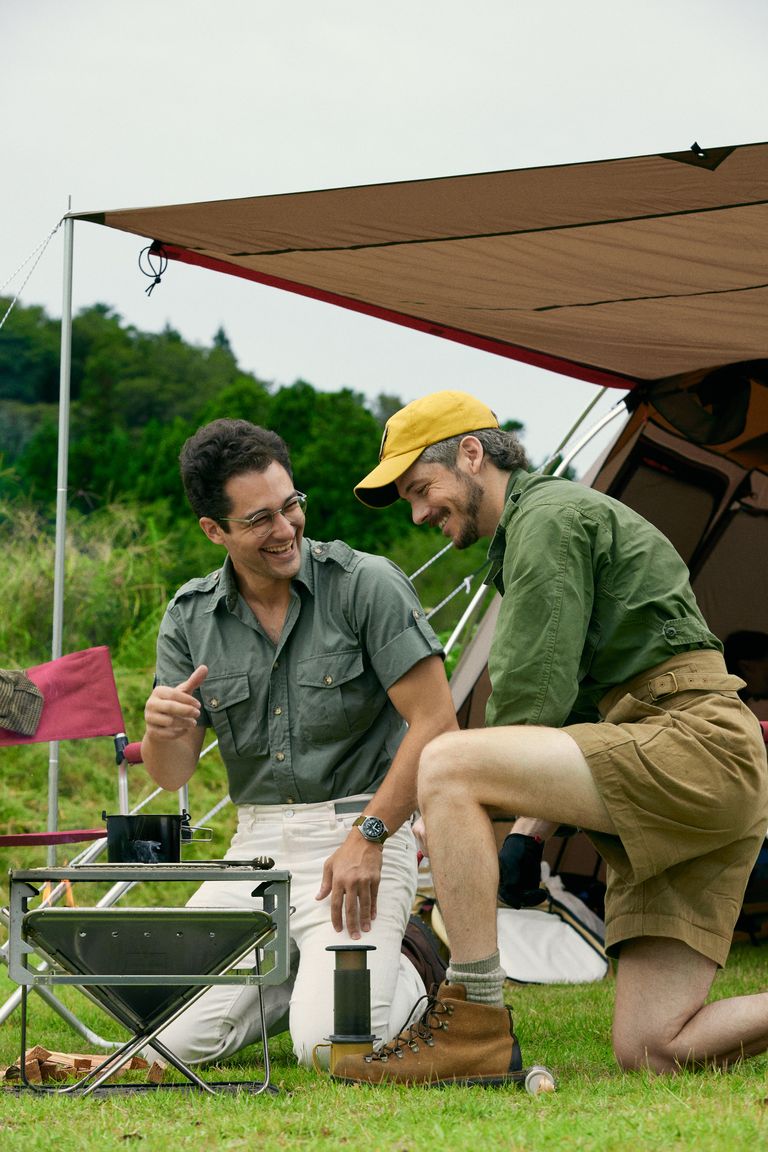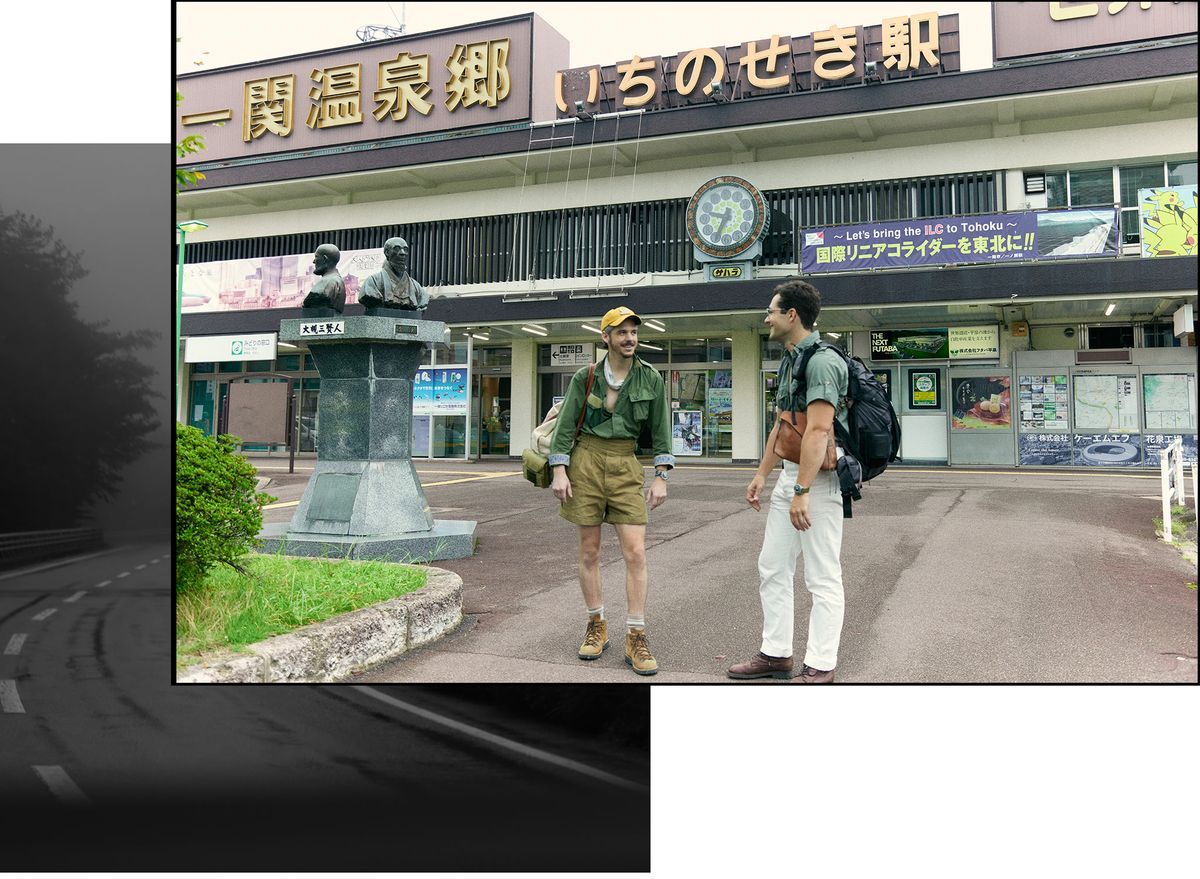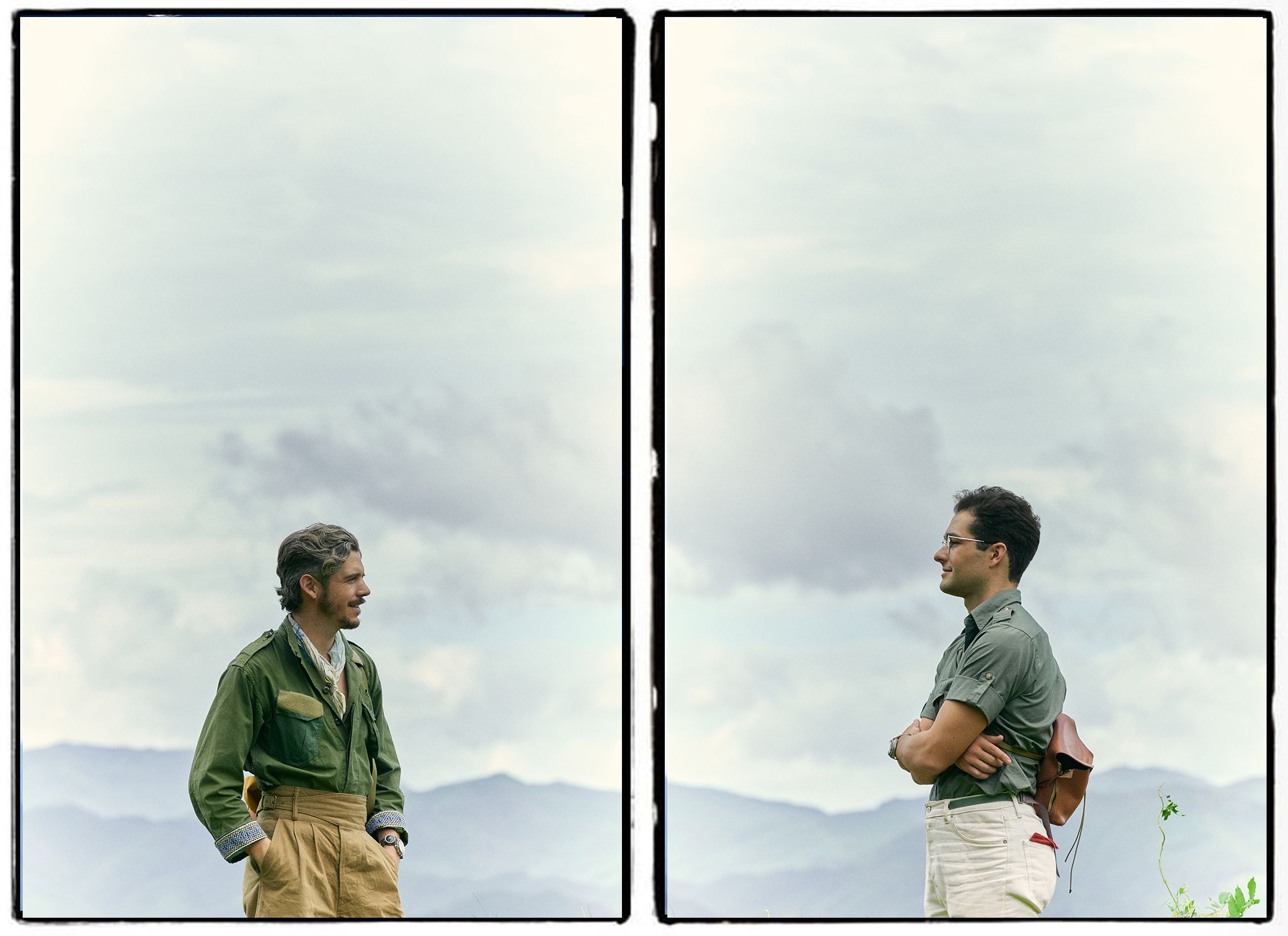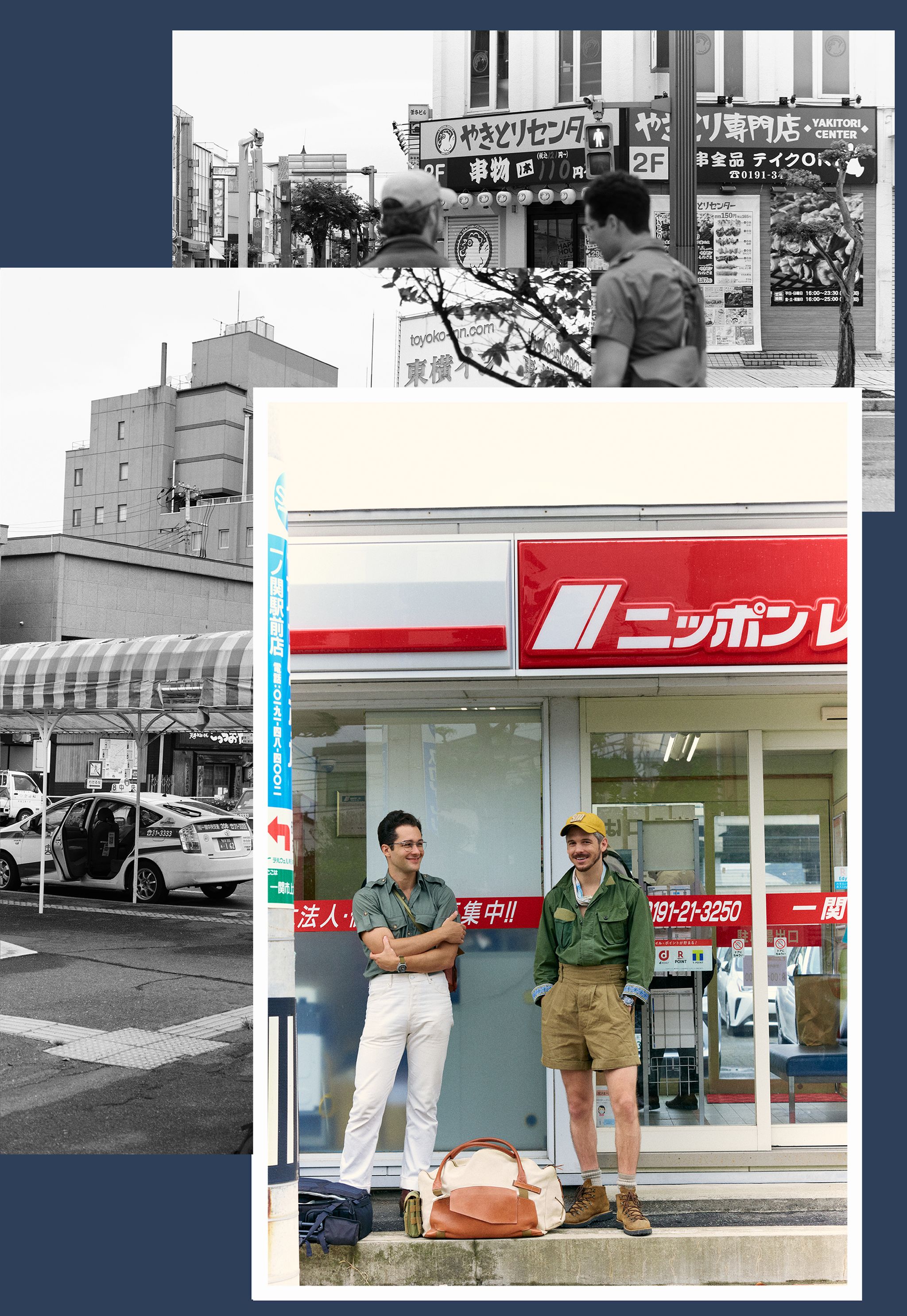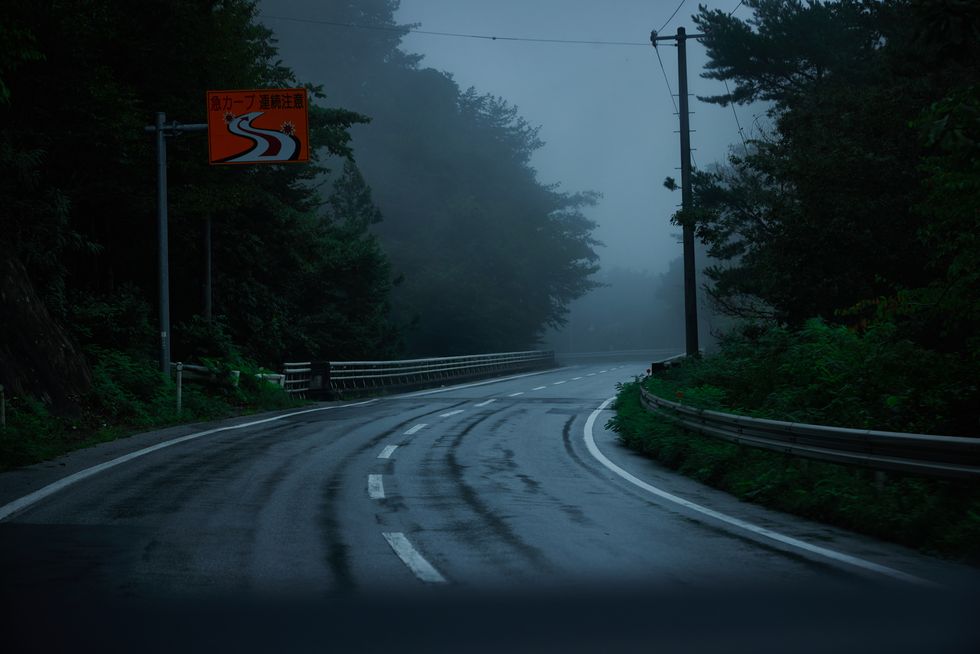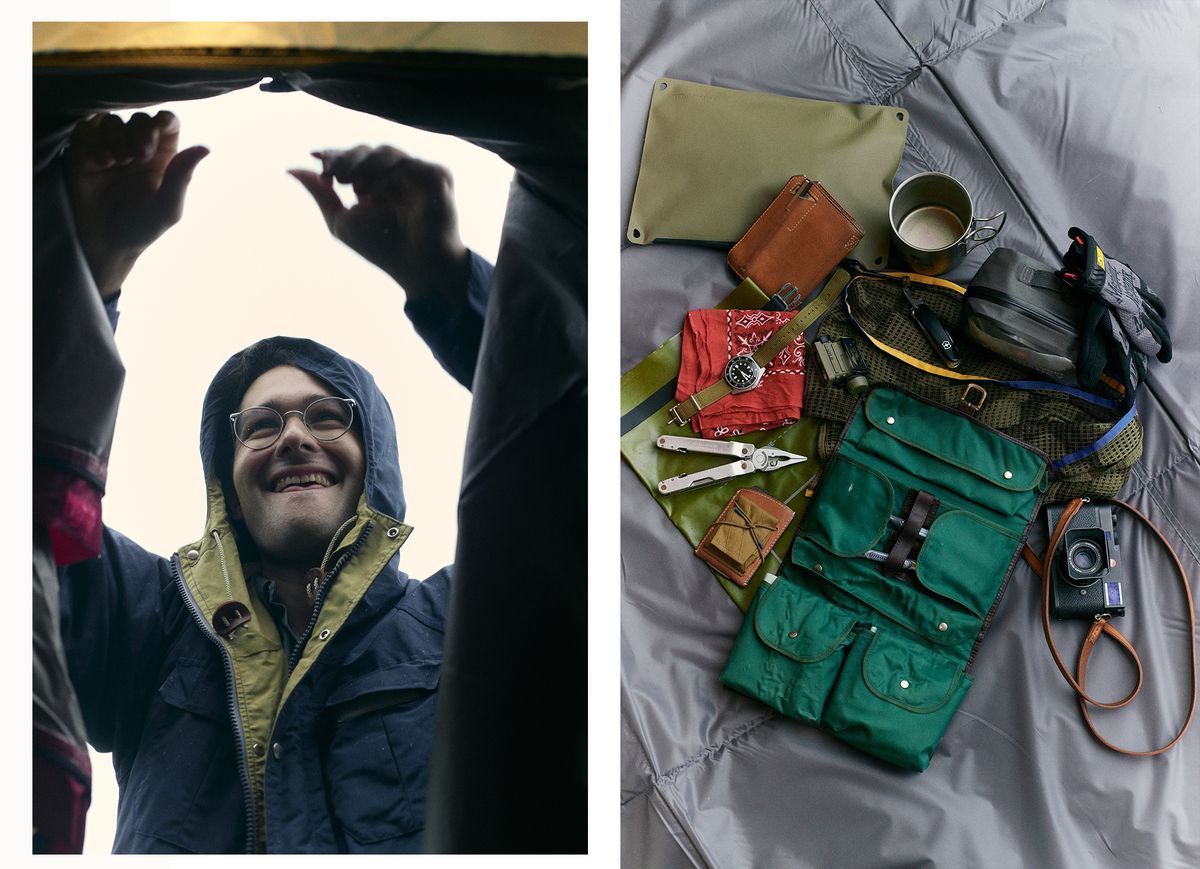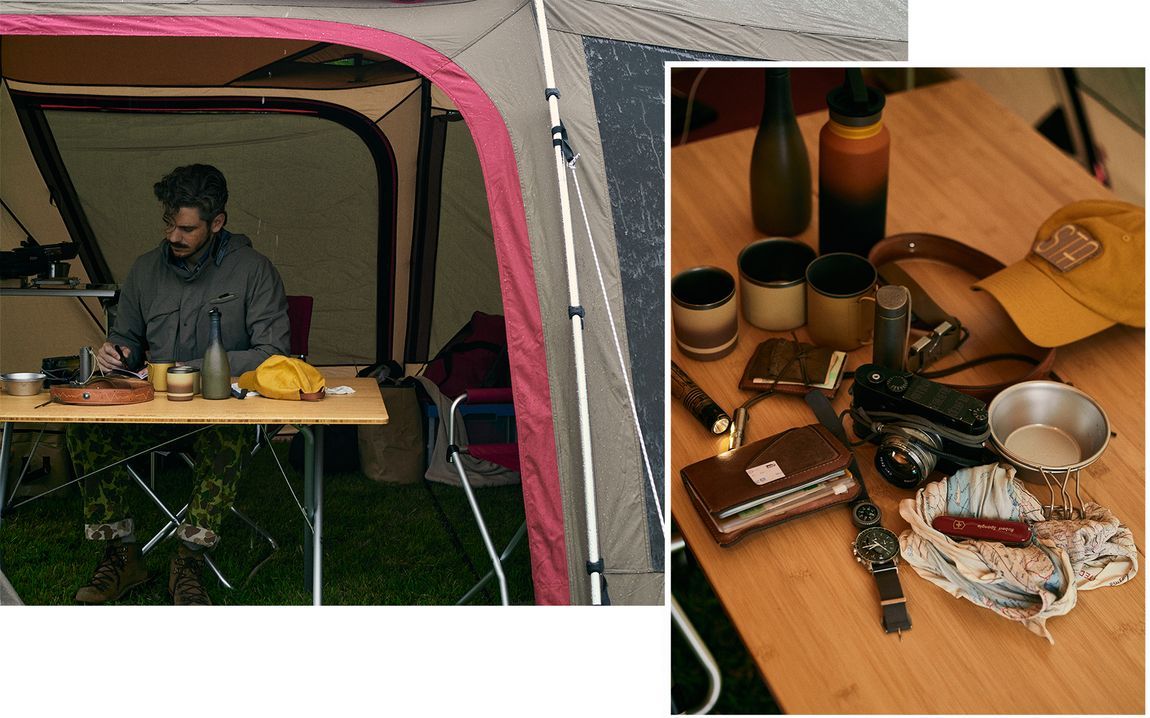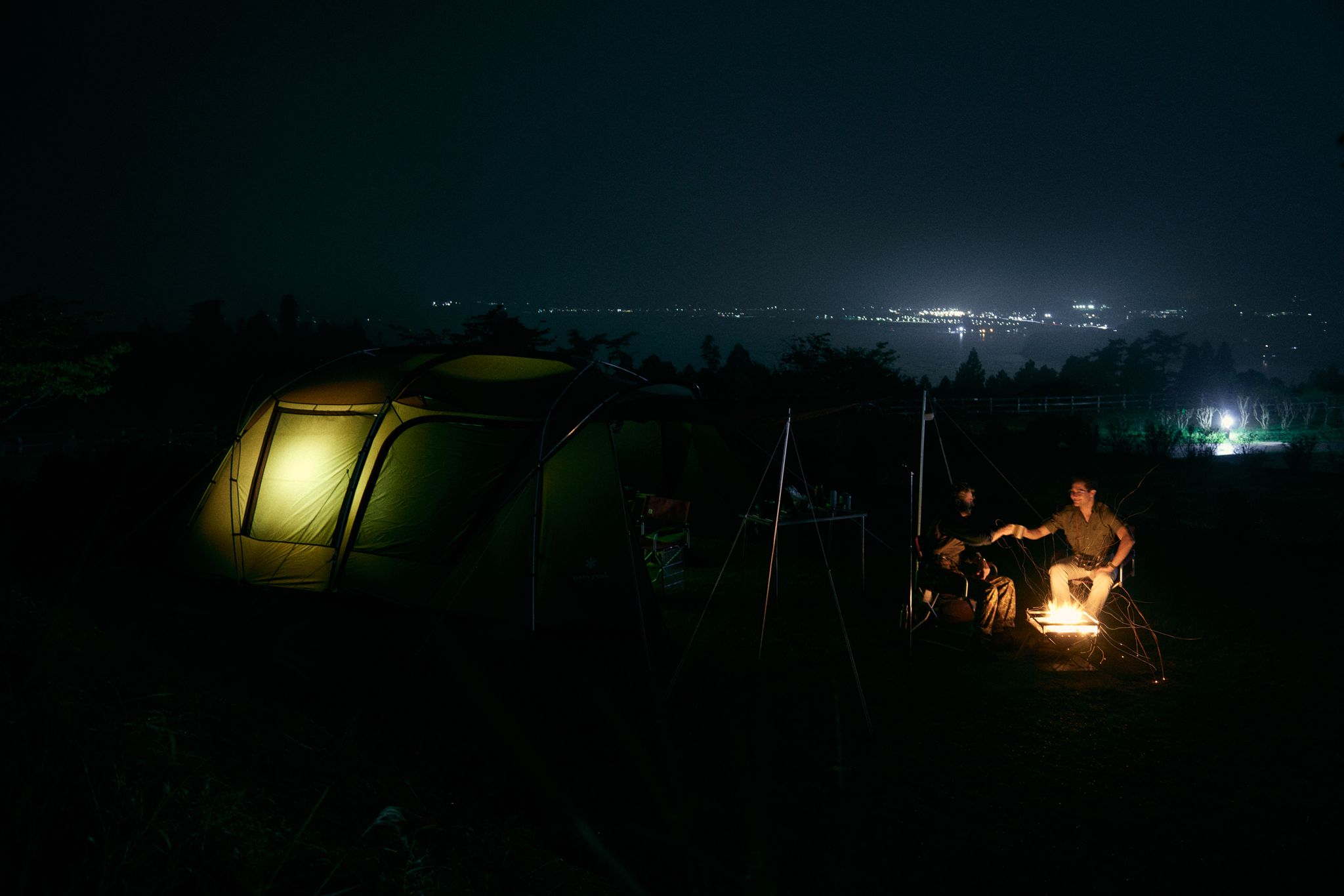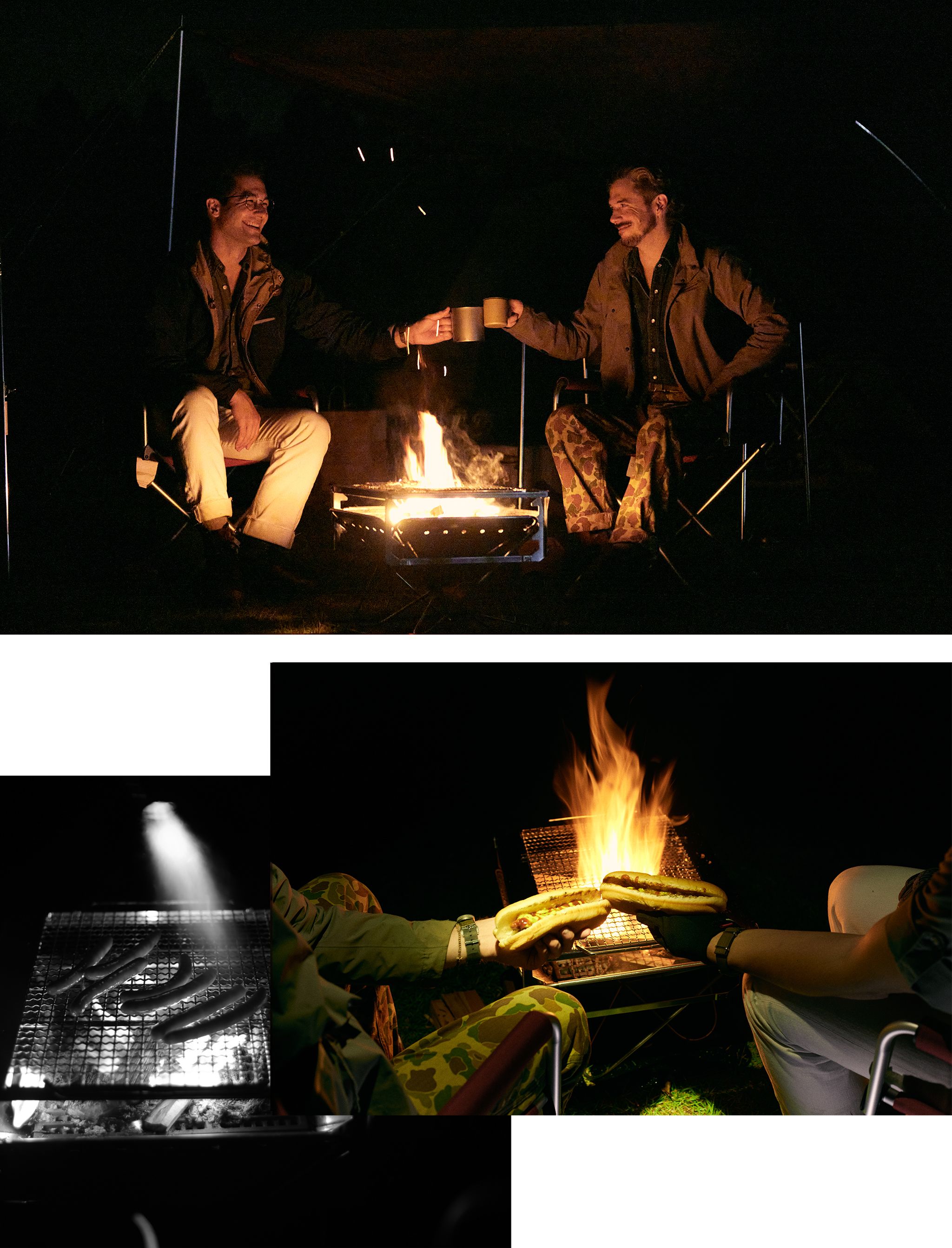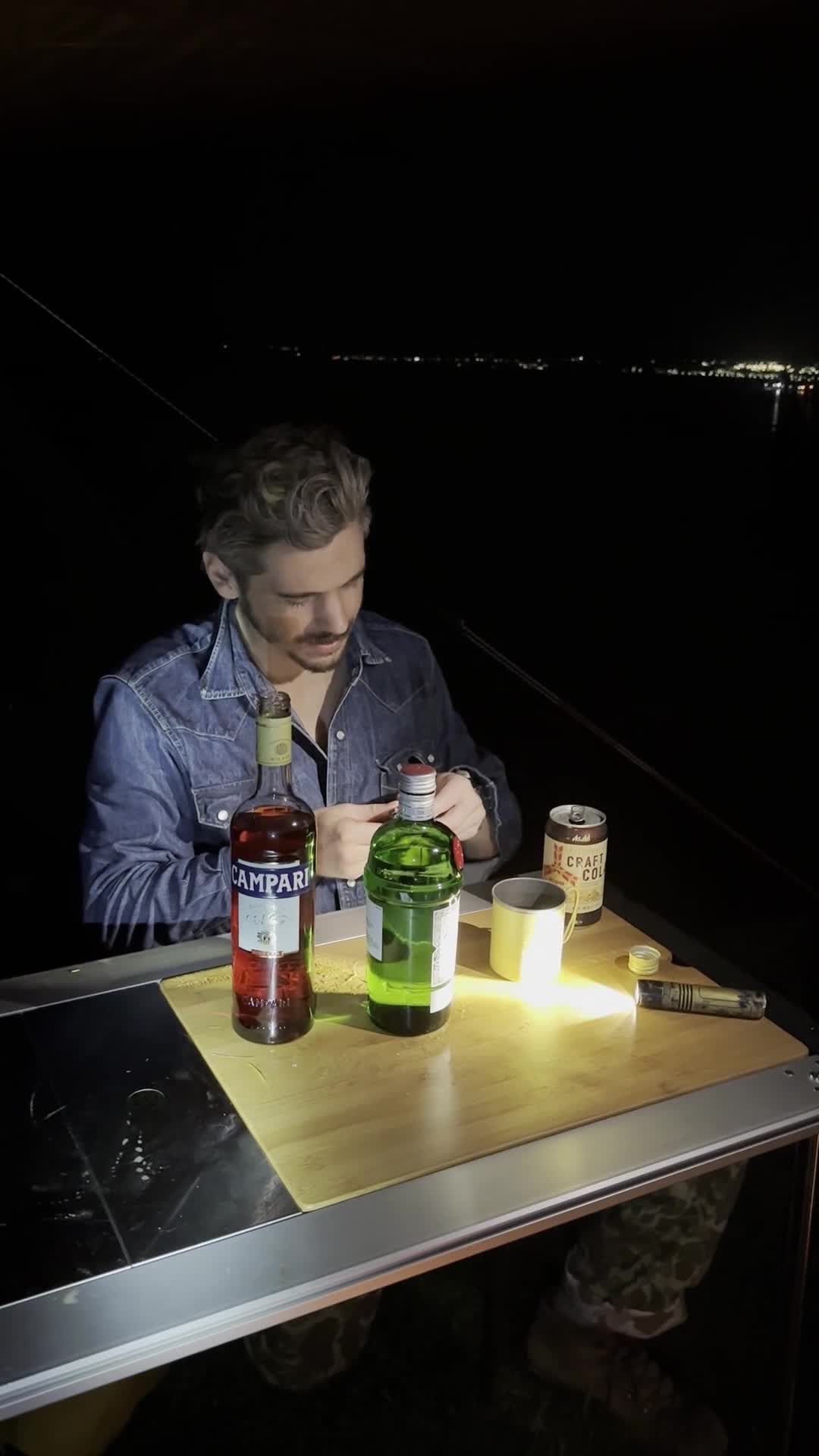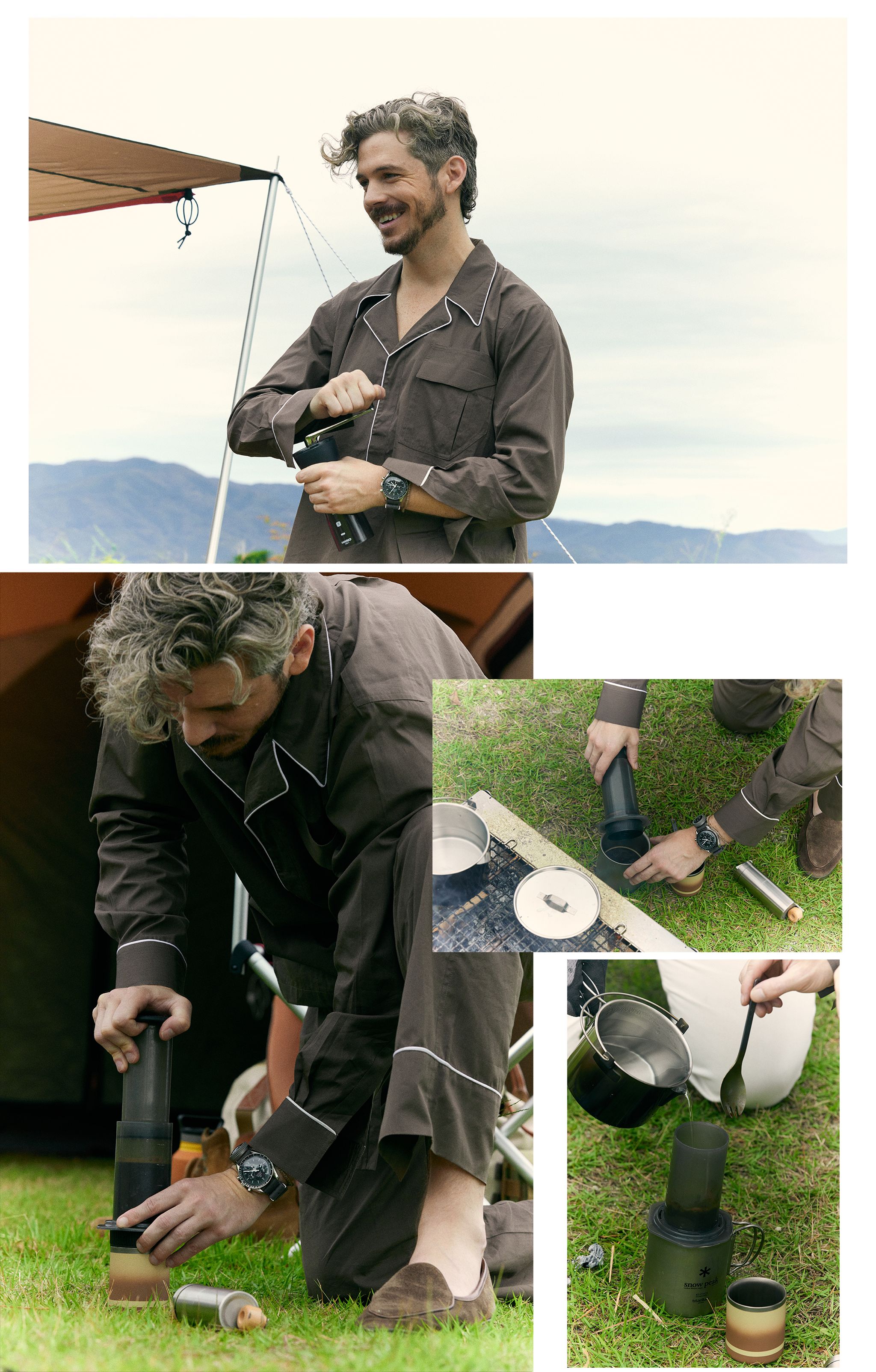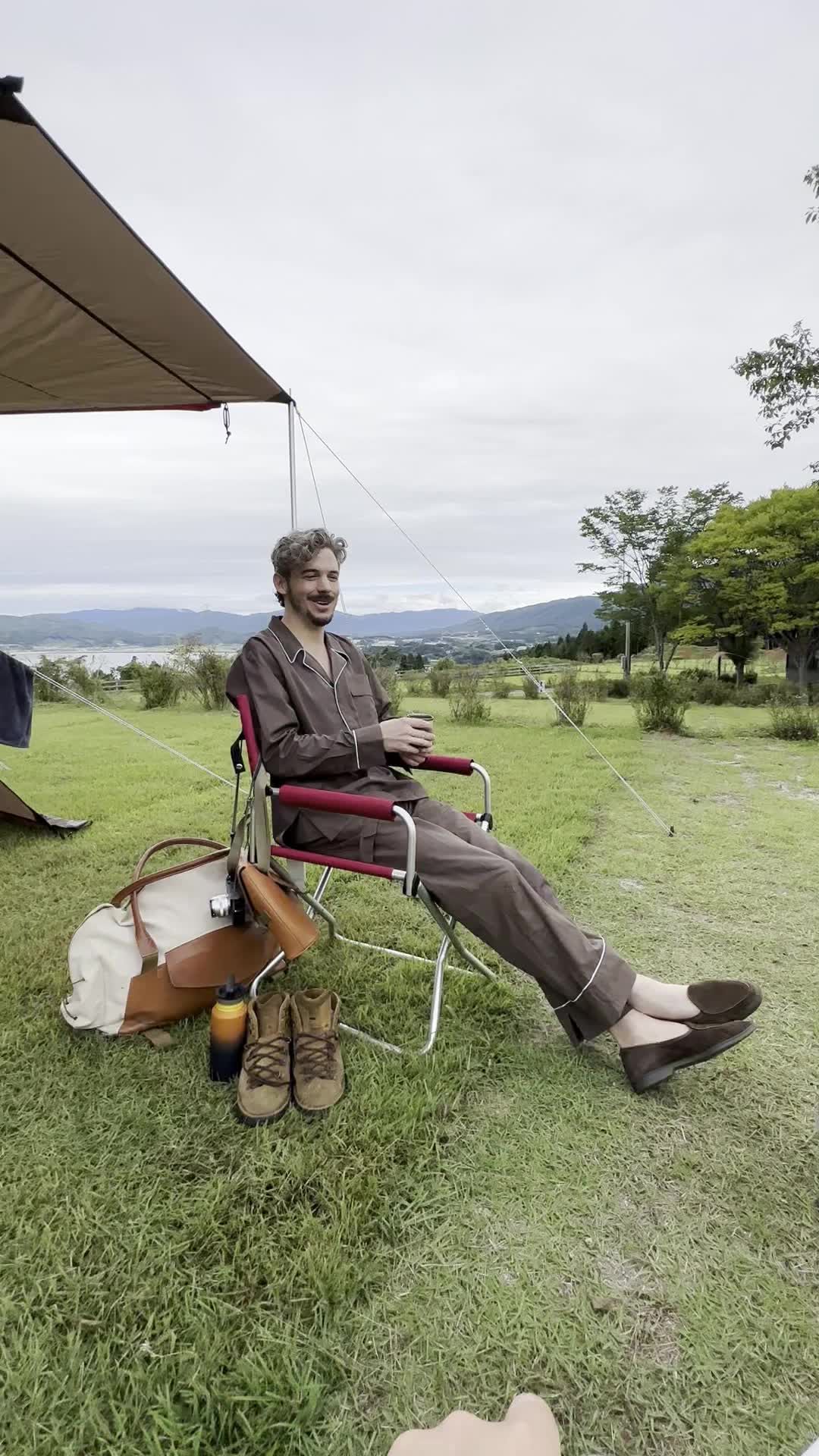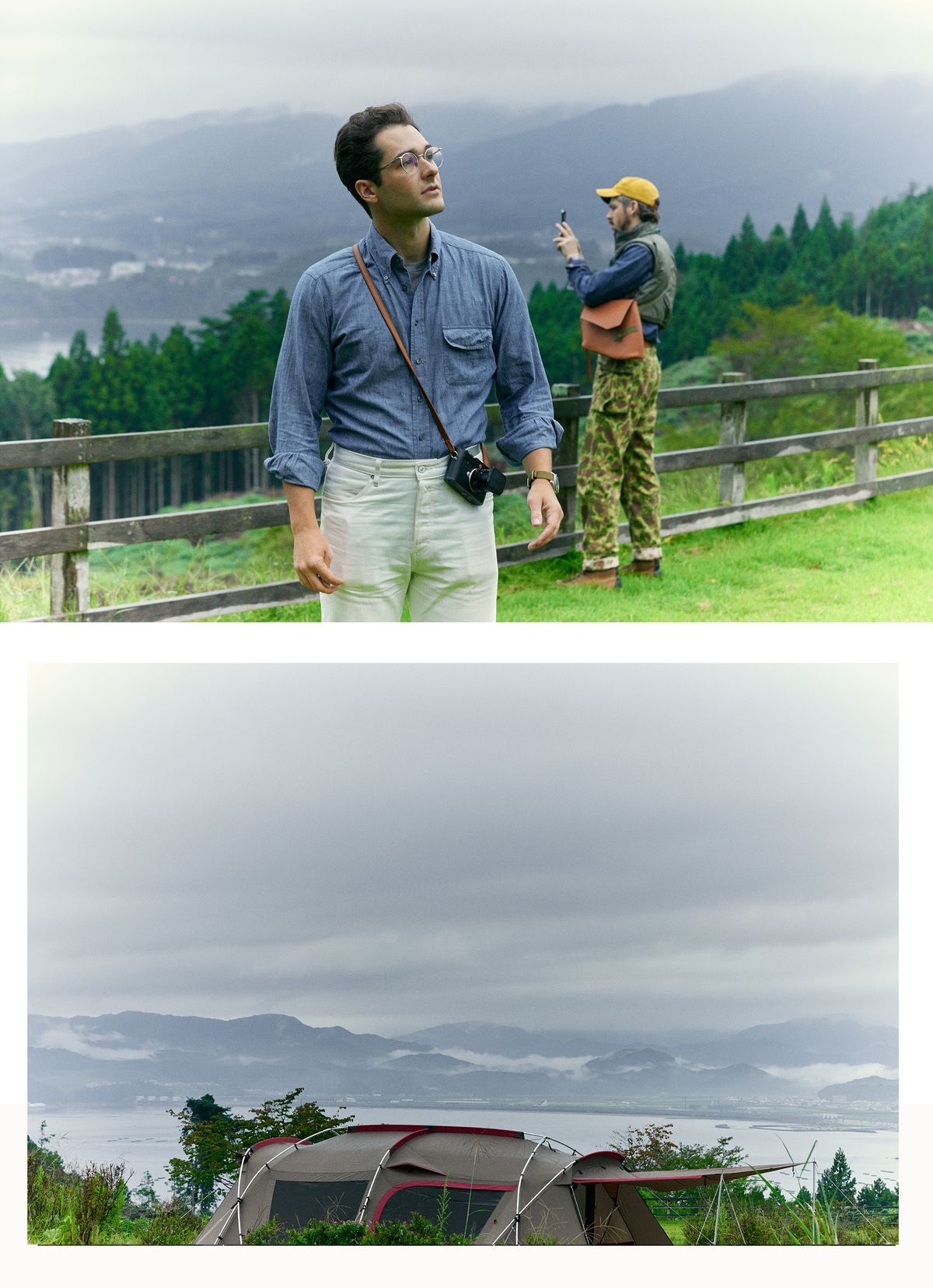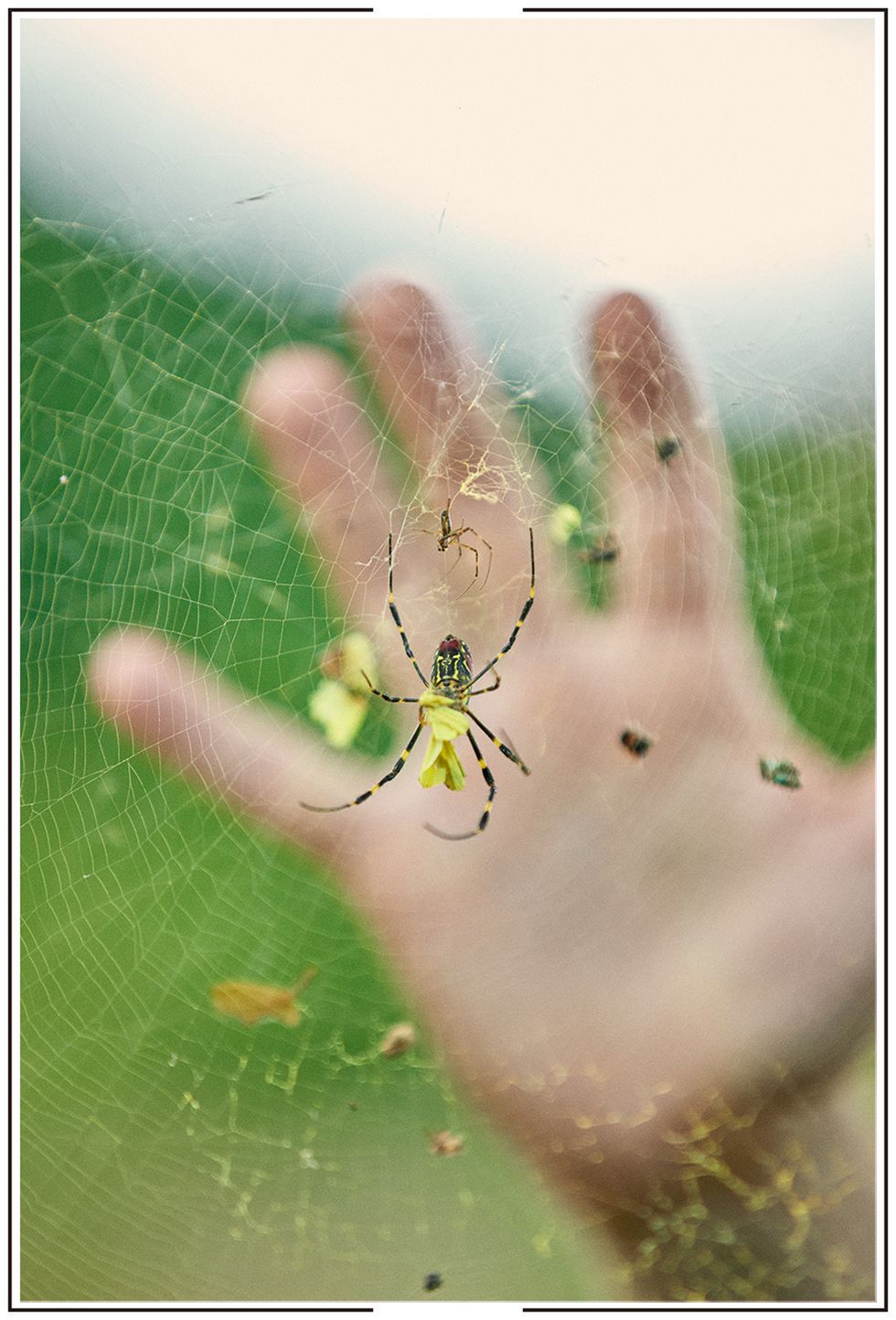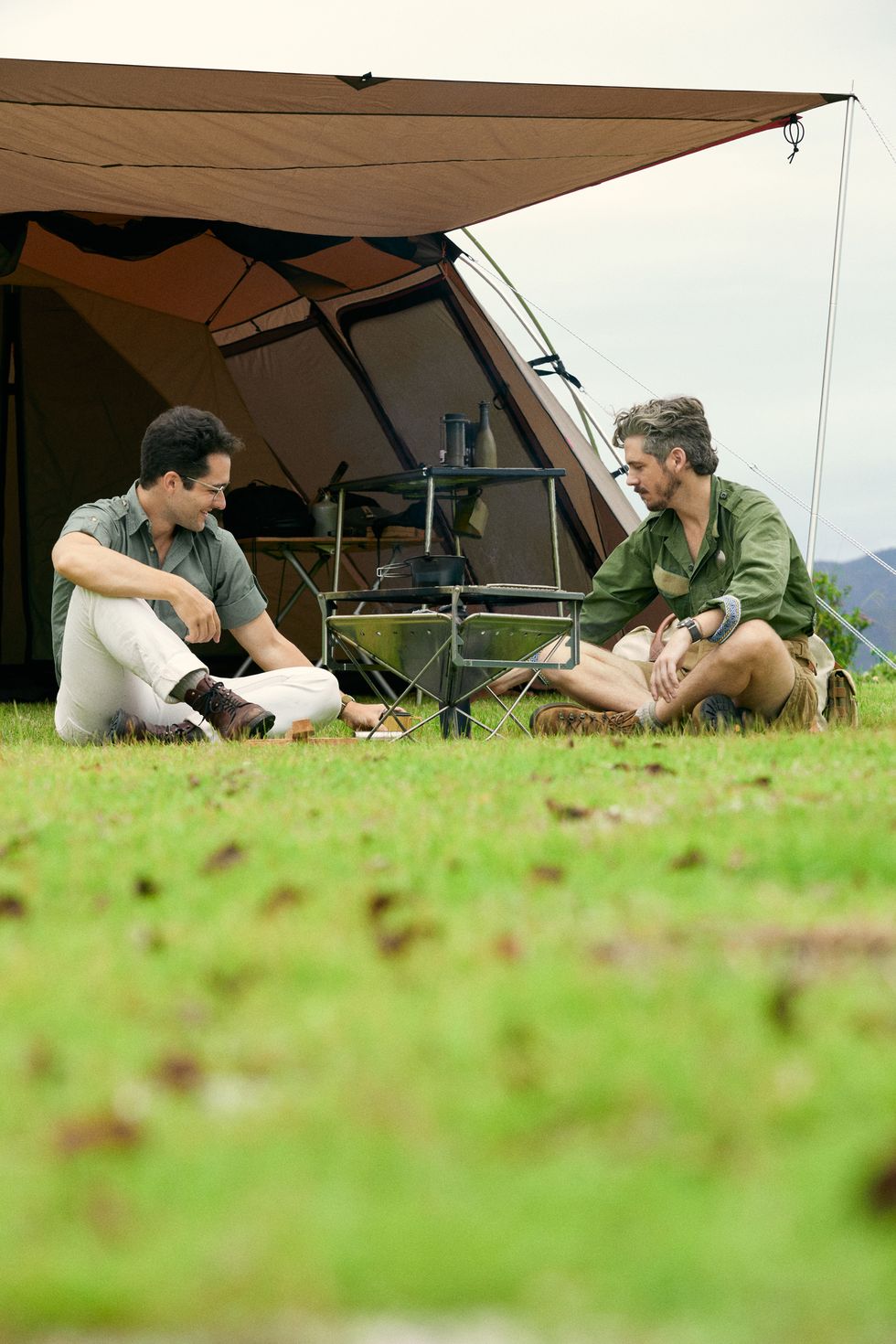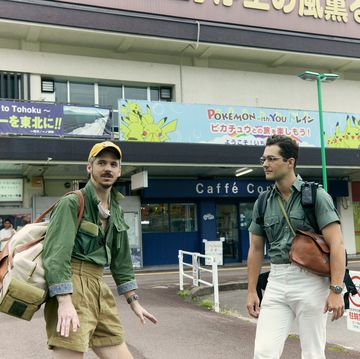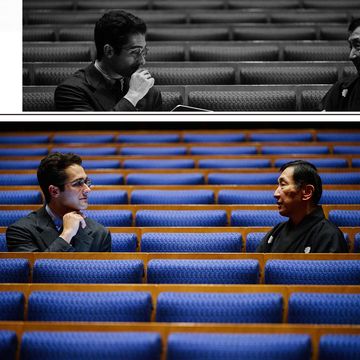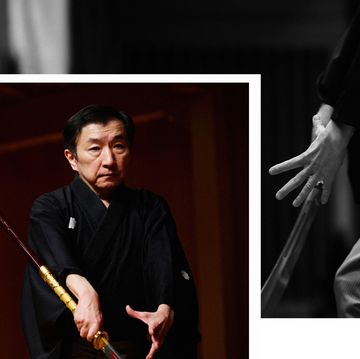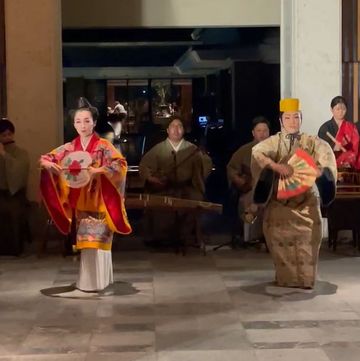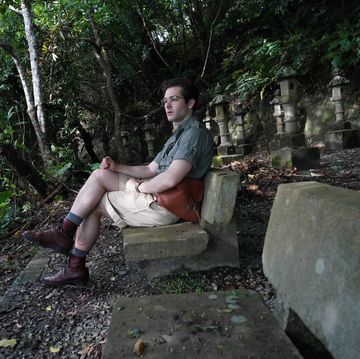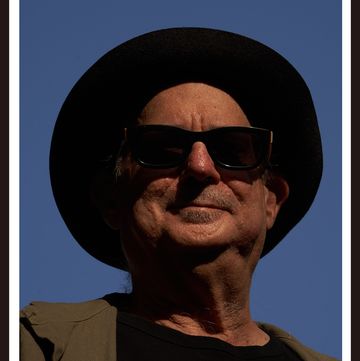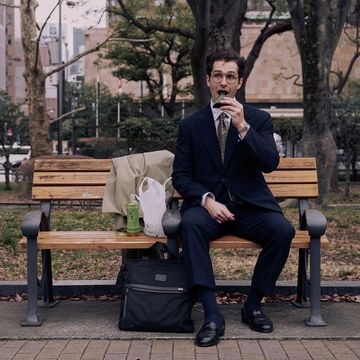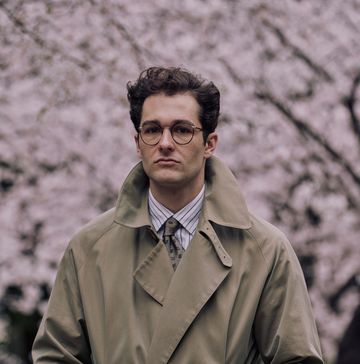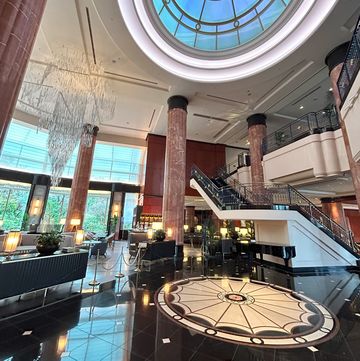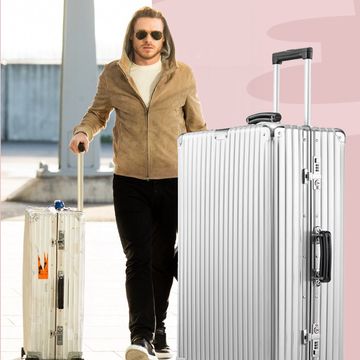In Rikuzentakata City, Iwate Prefecture, a new camping site named "Snow Peak RIKUZENTAKATA Campfield" opened on September 23, 2023 (Saturday). This land was used as a temporary housing area after the 2011 Great East Japan Earthquake. Now, more than a decade later, its initial role is finished, and it has reopened as a new campsite.
Before that, it was a camping site called "Rikuzentakata Auto Campsite Mobilia" established by Iwate Prefecture in 1999. After the Great East Japan Earthquake, it became a refuge, and a total of 168 makeshift temporary houses were installed on the tent sites and parking lots. It was also used as accommodation for construction workers involved in reconstruction and administrative officials.
Then, in 2018, due to the decline in accommodation usage and aging facilities, it was temporarily closed. By 2022, the role of temporary housing was fulfilled, making it possible to remove all of the temporary structures. Subsequently, Iwate Prefecture invested 600 million yen in refurbishing this campsite, and in May of the same year, Snow Peak was chosen as the designated manager. Thus, it was reborn as the "Snow Peak RIKUZENTAKATA Campfield".
This time, with the assistance of the reporting crew from the Japanese edition of Esquire, I (the writer, Christopher Berry) had the opportunity to embark on a one-night, two-day camping experience prior to the opening of the newly renovated "Snow Peak RIKUZENTAKATA Campfield."
Although I only have mid-tier camping experience, such as summiting Mount Fuji, and am fond of genuine outdoor experiences, there was no need to prepare camping equipment like tents this time. I opted for the "camp without baggage" experience, where the operational team of Snow Peak provided full support, from setup to teardown. The only things I actually prepared were basic essentials like food and a change of clothes.
The charm of camping is as varied as our group of campers. What is someone seeking right now? What do they value? Such feelings can greatly shift depending on the season or time. Deliberately placing oneself in a slightly inconvenient spot to relish an out-of-the-ordinary experience, falling asleep to the sound of insects chirping in nature, enjoying meals under the sky... the allure of camping is inexhaustible and cannot be fully encapsulated in words.
As a born and bred New Yorker raised in Manhattan and currently residing in Tokyo, the allure of camping for me is stepping away (physically) from the hustle and bustle of the city and immersing myself in nature. Surrounded by the scent of the wind from the mountains, the voices of forest-dwelling animals and birds, and the sound of a campfire, I am presented the opportunity to reflect on my current self and engage in a dialogue with my inner being.
Furthermore, gathering around a fire and camping with good friends creates an environment where we can freely discuss topics that we normally wouldn't (or couldn't) talk about, without any hint of embarrassment.
The significance of traveling with friends as an adult...
Now, for my camping wingman, I reached out to my friend Rob (Robert Spangle), a fashion photographer and warzone cameraman. While I reside in Tokyo and Rob is based in LA, I approached him when he mentioned he was traveling to Japan, and he gladly agreed to join me.
Why did I want to go camping with Rob? Because I've known him for a long time and deeply respect him as a friend who consistently inspires me. Moreover, much like the "renewed" Snow Peak RIKUZENTAKATA Campfield, Rob appreciates the value in "remaking," breathing new life into old things. I believed he'd be particularly attuned to the charm of present-day Rikuzentakata. Additionally, having ventured into dangerous areas as a war photographer in places like Afghanistan and Ukraine, I wanted to better understand Rob’s way of thinking and life philosophies.
There’s one other significant reason that I picked Rob. I've realized that as we grow into adults, even though we might "share time" with friends, the opportunity to "share the same experiences" as we did in our younger days diminishes.
For instance, even though people who frequently dine out with friends might find their conversations centered more on updates, quotidian concerns, or advice – doesn't it all sometimes feel like a "reporting session"? Of course, I fully understand the reality that as adults, each of us has different lives, values, jobs, and families, making the creation of shared experiences difficult. While sharing time is vital, I hope to prompt Esquire's readers to ponder the often-overlooked importance of sharing experiences.
From Tokyo Station to Iwate Prefecture's Ichinoseki Station!
Directions to "Snow Peak RIKUZENTAKATA Camp Field" Now, the "man trip (adventure)" begins.
Rob and I met up at the "Yaesu Central Exit" located on the Yaesu side of Tokyo Station at 6:00 AM. From Tokyo Station, we took the JR Tohoku Shinkansen "Hayabusa" departing at 7:16 AM for Morioka, aiming for "Ichinoseki Station" in Iwate Prefecture. The train ride takes 2 hours and 5 minutes.
For those wondering what’s good about Ichinoseki Station, this place is renowned for it’s legendary jazz cafes, and as a sacred spot for jazz audio, captivating fans not just in Japan but worldwide. Among others, it's where the jazz cafe "Basie" resides. Amidst the old town landscape, this legendary jazz cafe stands quietly, adding to the significant allure of this area.
Once at Ichinoseki Station, we picked up a car we had reserved from a nearby rental car shop and drove to "Snow Peak RIKUZENTAKATA Camp Field (Address: Iwate Prefecture, Rikuzentakata City, Otomo-cho Usozawa 155-78) GOOGLE MAP," about 1 hour and 30 minutes away (without using toll roads). If starting from Morioka Station, it's approximately 2 hours by car using toll roads (or 2 hours and 30-45 minutes without tolls).
Alternatively, if you choose the JR Ofunato Line (towards Kesennuma) from Ichinoseki Station, it's a 1-hour-10-minute ride to Rikuzentakata Station, followed by a roughly 20-minute car ride. However, considering the number of car rental shops, procuring supplies, and the time it takes to get to the campsite, it's arguably better to rent a car right at Ichinoseki Station. You can shop at supermarkets near the station, and having a rental car allows you to experience the local atmosphere during breaks.
The Charm of "Renewal" and "Remake"
Bringing a Fresh Breath Due to a detour and getting lost, it took about 2 hours and 30 minutes by car from Ichinoseki Station to "Snow Peak RIKUZENTAKATA Campfield". The first day was foggy, with occasional light rain. As time passed, there were moments when the blue sky peeked through the clouds.
This campsite is Snow Peak's ninth directly managed campsite nationwide. Spread over an expansive area of around 225,000 square meters, it has 145 tent sites and even sites with electricity. It's said to be the second largest, following the campsite attached to Snow Peak's headquarters in Niigata. The campsite is equipped with vending machines, shower rooms, toilets, a cooking building, washing stations, and even a laundry area. It’s quite user-friendly even for camping beginners.
Since we opted for the "camping without gear" package, an all-in-one tent was already set up for us. Until the light rain stopped, we unpacked and prepared the fireplace, savoring a tranquil moment overlooking Hirota Bay.
Though "Snow Peak RIKUZENTAKATA Campfield" has been renewed, I believe its real charm lies in a harmonious coexistence of the past and the present. An update of what already exists, while allowing its previous allure to continue.
Rob, who loves Snow Peak items, collaborated with Cerakote, which provides coating on a wide range of materials. He brought custom-colored Snow Peak cups and water bottles that he personally remade. Curious, I asked him, "The term 'remake' is popular in Japanese culture. How does it influence your experiences and creative desires?"
"For me, 'remake' means 'the process of making old things new again.' Within this term, in my context, there are two main styles: 'trickle-down' and 'upcycling'. 'Upcycling' is the act of transforming waste or unwanted items into newer or better products. In the fashion industry, from a trickle-down perspective, it might mean re-fashioning garments to fit the times. As for upcycling, it might involve combining vintage with old clothes to create something new. Japan has certainly pioneered the latter, upcycling. From my point of view, Japan consistently excels in this. I'm always inspired by it," Rob explained.
As we continued our conversation, we began preparations for dinner, and slowly, dusk set in.
From unprecedented experiences, how can we live positively?
As we sat around the bonfire, the night deepened.
Since I set foot on this land, I couldn't help but think about the Great East Japan Earthquake that occurred on March 11, 2011. Until the day before the quake, on March 10, 2011, I was filled with excitement and anticipation. That's because I had just graduated from the University of Pennsylvania and had been accepted into an 8-week summer intensive course called "Princeton in Ishikawa (PII) Program," where students from Princeton, Harvard, and Duke universities were set to study Japanese language and culture at the Ishikawa International Exchange Association in the summer of 2011. For me at the time, it was my first opportunity to go to Japan. But due to the impact of the earthquake, all summer study abroad programs in Japan were canceled.
I watched the tragic news of the earthquake through visuals in the USA. The raging waves pushing heavy machinery and buildings reminded me of watching the collapse of the World Trade Center (911 terrorist attacks) on TV, evoking the same emotions. Both events were unspeakably terrifying in my memory.
I posed a question to Rob, "This unprecedented disaster... you know, the beautiful campsite we're staying at was once where the victims of the Great East Japan Earthquake that occurred on March 11, 2011, took refuge. Faced with such an unprecedented situation, what would you do, Rob?"
"When my hometown, Malibu (in western Los Angeles County), was hit by a massive wildfire, my godfather told me, 'Never forget that disasters are always unprecedented.' I now strive to embrace the notion that 'the only constant in life... is change.' Whether it's political unrest or armed conflict, documenting that change as a war photographer... going to the actual place, getting involved, and watching. Engaging directly rather than accepting it from a distance can bring a deeper understanding, right?". He spoke of the importance of facing reality in the same way as an ancient stoic leader.
As a war photographer, Rob mentioned that when he was reporting in Ukraine, often the only food they had were hotdogs. Rob and other journalists had named them "FLOT dogs," after the acronym for "first line of troops."
The crew and I paid homage to this ritual. After all, we got to experience the still dark and empty "Snow Peak RIKUZENTAKATA Campfield" before anyone else –we were on a frontier of our own.
They say hunger is the best spice, but with a campfire and great company, any meal becomes truly delicious. After exploring the campsite with a view of the beautiful scenery of Rikuzentakata all day, we grilled bread and sausages on a metal grate, added ketchup and mustard, and devoured our delicious "FLOT dogs." From the dark forest, there echoed an eerie cry of an unknown animal. We named this mysterious animal that might attack us at any moment the "Monkeybear" and enjoyed our "FLOT dogs" while being slightly frightened by its calls.
Rob and I have a sort of tradition when we reunite. We toast with a cocktail called a "Negroni" while smoking cigars. Speaking of cigars... I thought smoking them at this campsite might be inappropriate, so I brought chocolate cigars from "Venchi" a chocolate and gelato specialty store founded in 1878 in Turin, Italy. The design of the packaging mimics Cuban cigars, so much that it can be mistaken for a real cigar, making for a playful conversation starter.
The last time we toasted together was when we met in Milan in January 2022. We had planned to keep the tradition with Campari, dry gin, and orange. Unfortunately, we realized we forgot the vermouth.
So, we had to improvise and create a new "Negroni." We used a ¥150 "Mitsuya Craft Cola (350ml can)" from a nearby vending machine to complete our new cocktail recipe. We named it "Snow Peak Negroni Sbagliato." "Sbagliato" in Italian means "mistaken" or "failed." Essentially, it's a "mistaken Negroni made at the Snow Peak campsite."
While it was a cocktail born from a mistake, it became our one-of-a-kind original drink to reminisce about the moment. Rob, the crew, and I vowed to reunite at "Snow Peak RIKUZENTAKATA Campfield" and toast with this "Snow Peak Negroni Sbagliato."
I realized once again that sharing experiences with friends can make even the most random moments special. I then asked Rob, "Why do you think, as we age, we tend to lose connections with old friends? If that happens, how would you counteract it?"
"Our lives have become busier, and I believe our friends feel the same way that time seems to fly by even faster. Thanks to new technology, even without physical connections, we can feel as though we're close to each other. Still, I always try to make plans to go out (to real spaces) with my friends as much as possible. This is because it can enrich both the experience of traveling and our friendships. In addition, I try to mark my friends' birthdays and anniversaries on my calendar. It's a good way to keep in touch and to grasp the passage of time," he answered. I was glad to learn that Rob, like me, values sharing experiences with friends. We talked until almost 11 pm, then went to bed.
Energy to wake up in the morning
As dawn broke, light streamed into the tent, waking us up.
Rob was immediately on "morning duty," wearing "JABS" pajamas paired with "Baudoin & Lange" suede loafers, looking like a king. He's a big coffee lover, having even served in the US Marine Corps, where he once had his mother send him a portable coffee grinder and a French press to make coffee for his teammates during deployment. This camping trip was no different. Rob carefully brewed coffee for me and the interview crew, as usual, making his own cup last.
Making coffee in the morning while camping is quite an endeavor. For many city dwellers, getting the first cup of the day involves stumbling to a nearby convenience store with half-shut eyes. But at a campsite, getting that morning coffee becomes a deliberate and proactive act.
Instead of using a gas stove, we light a fire with last night's charcoal. By the time we’ve hand ground the beans, we're already as awake as if we had consumed the caffeine in a cup of coffee. That first sip after all the effort feels especially sweet, as if we're syncing up with nature.
On this particular morning, we used Snow Peak's mill and cup to make our coffee. We genuinely love using Snow Peak products in our private lives. Surrounded by sea, mountains, and vast nature in the Snow Peak campsite, I asked Rob, "Why do you like Snow Peak products and how do they benefit your life?"
He responded,
"My approach to immersing myself in nature stems from my career and experience, born from a 'reconnaissance' perspective. I like blending in with nature and observing. From this viewpoint, when I examine several Snow Peak designs, I love the earthy colors, natural materials, and the elegance they possess. Snow Peak sets itself apart from the flashy, technical camping gear I'm used to. Many of their products can be used both at home and outdoors. For instance, brewing coffee the same way both at home and while traveling allows me to relax no matter where I am."
Camping is an escape from the mundane, and our increasingly hectic everyday lives. However, experiencing this campsite allowed us to redefine the concept of recharging more fittingly as rejuvenation. Having experienced Rikuzentakata City, a region in Japan not often visited, we felt spiritually and emotionally inspired.
I then asked Rob, "When did you first become interested in Japan?"
"When I was a child, my grandfather often traveled to Japan for work. The souvenirs he brought back from Japan were the first things that stimulated my imagination of the outside world. Later, my father introduced me to Japanese movies, anime, and fashion. I learned about this country through pop culture and fantasy, and every time I visit Japan, I feel as if I'm floating," he shared.
As the last campfire flickered in the wind, we finished our coffee contentedly. Surely, everyone there was comparing the winding, narrow mountain roads leading to Iwate Prefecture's Rikuzentakata City to their own life journeys.
Traveling through Japan
After finishing our coffee, and though we were reluctant, it was time to leave the campsite.
After cleaning up and getting ready, before leaving, we decided to take a short walk around the campsite. As we finished exploring the grounds, still feeling a bit sentimental, we noticed some construction workers nearby since it was before official opening hours.
A practical problem then dawned upon me, "What about lunch!? " We had to leave the campsite by around 10 am, but our Shinkansen train from Ichinoseki station to Tokyo was not until the evening. I have a policy regarding this: "If you want to find good local food, ask truck drivers or construction workers!" So, I asked the construction workers from Hasegawa Construction about recommended power lunches in Rikuzentakata City. They directed us to the "Chinese Restaurant Kumagai." They said the tantan noodles there, close to Rikuzentakata station, are exquisite.
After the workers informed us about the campsite’s past as a temporary housing, and the fact that scallops are scarce this year, we thanked them and left, heading for Rikuzentakata Station.
The drive from the campsite to Rikuzentakata Station took about 30 minutes, ensuring safe driving. As the workers had mentioned, the two types of tantan noodles - white and black - at "Chuka Shokudo Kumagai" were exceptionally delicious. With our stomachs full, we decided to take a stroll around the area. The current vicinity of Rikuzentakata Station is dotted with unique architectural structures, including community facilities designed by architects Kengo Kuma and Toyo Ito, with parks by Hiroshi Naito, which are open for locals to use and gather in daily.
While looking at a map on a signboard, a local man approached and kindly spoke to us in English. He shared the story of the training ship "Kamome," which was swept away by the tsunami of the earthquake. In 2013, the ship was found on the coast of Crescent City, California, roughly 8000km away. It was returned to Rikuzentakata City and is now exhibited in the Rikuzentakata City Museum near the station as a symbol of exchange and friendship between Crescent City and Rikuzentakata City.
Since we had Rob, who is from California, with us, we thought it might be fate and decided to visit the museum. Later, we bought coffee at "Tokyoya Cafe" near the museum and planned to return to Ichinoseki Station. The cafe owner also approached us in English and talked about the charms of Rikuzentakata. When we shared our wonderful experiences at the campsite and the intent of our coverage, he candidly and smilingly told us:
"We have cried a lot and are tired of crying. Now, we want to convey and show the vibrant and positive Rikuzentakata. We are genuinely happy when foreigners and people from other prefectures visit and enjoy our city."
These words somewhat comforted our crew. Until that moment, we felt somewhat guilty because we had a marvelous experience at the Snow Peak RIKUZENTAKATA Campfield and thought outsiders like us might be perceived as superficial tourists. The newly renovated area around Rikuzentakata Station still has large seawalls and reminders of the disaster, invoking mixed feelings.
"You foreigners, who weren't here at the time, wouldn't understand," or "outsiders should stay out." We might have faced such harsh words. However, for us, whenever we think of or hear the name Rikuzentakata City, the unforgettable memories with our friend Rob and the crew will undoubtedly come to mind first.
While respecting the people and history of this land, I hope our readers will also visit and create wonderful memories here, making it a place filled with joyous recollections.
"Regional Revitalization Project"
Undertaken by Snow Peak
Snow Peak is currently focusing on the "Regional Revitalization Project," creating new value in various fields, including nature and urban spaces. In particular, as one measure to address societal issues such as regional decline due to urban population concentration, they are operating outdoor bases centered on camp fields that promote local natural, cultural, and industrial attractions. They also offer experiential tours called "LOCAL TOURISM."
Starting in 2021, they began recruiting camping site partners managed by the company in all 47 prefectures nationwide. By further collaborating with local governments and regional companies, they promote the development of new outdoor bases and experiences that make use of local resources. From April 2023 onwards, they are planning to open camp fields in four locations nationwide. One of them being "Snow Peak RIKUZENTAKATA Campfield."
Photograph / Allan Abani
Cooperation / Robert Spangle
Interview / Christopher Berry
Edit / Hikaru Sato

